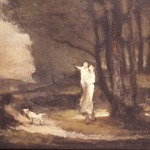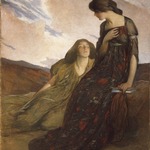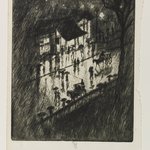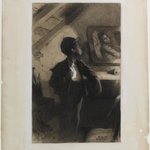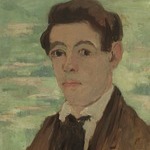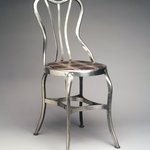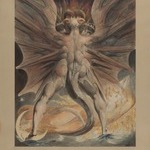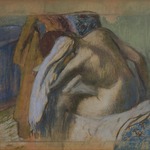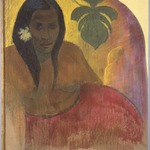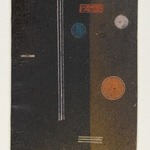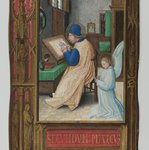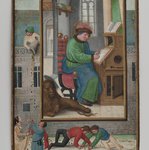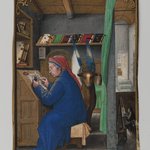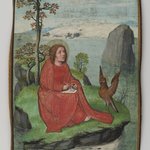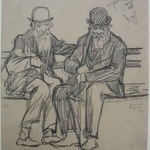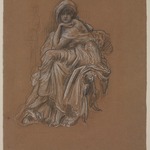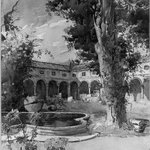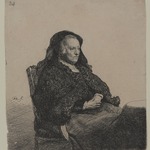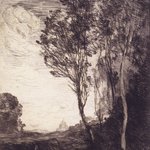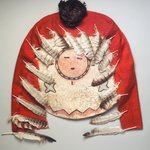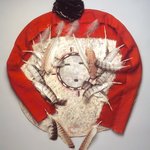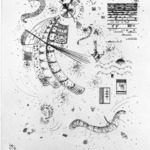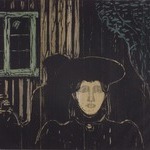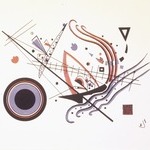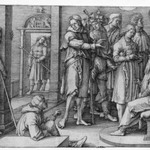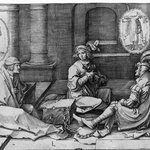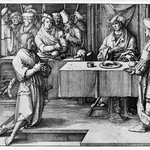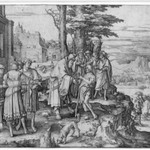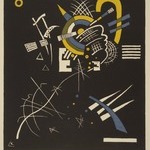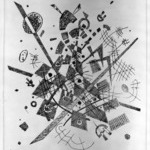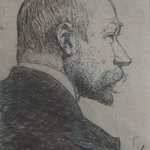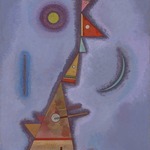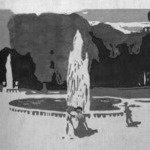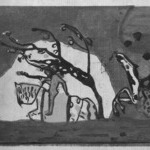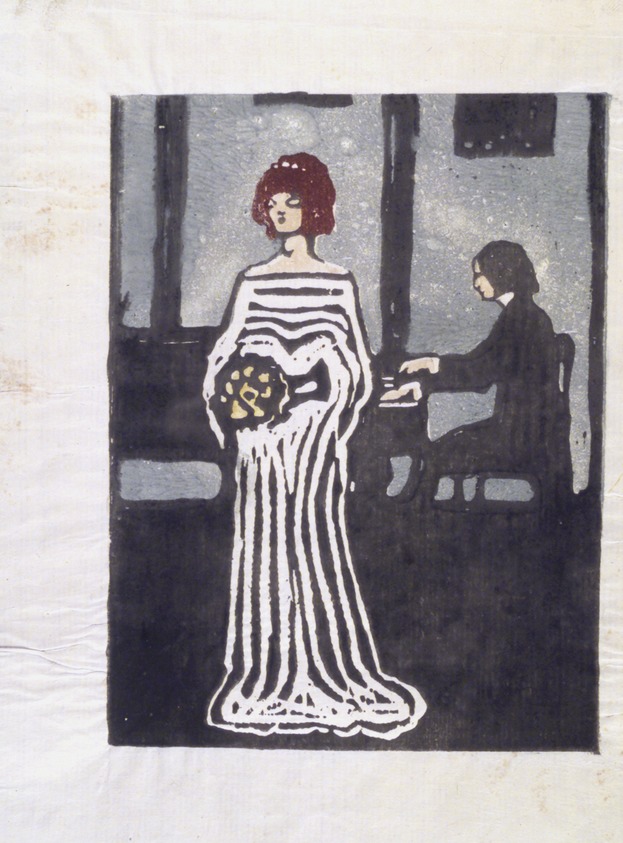
This image is presented as a "thumbnail" because it is protected by copyright. The Brooklyn Museum respects the rights of artists who retain the copyright to their work.
Sangerin (The Singer)
Vasily Kandinsky
European Art
This print reveals the new pictorial language of simplified forms and surface pattern that would be foundational for Vasily Kandinsky’s later, more abstract imagery. Its subject—evoking piano notes and song—references his great passion for music, which would also inform his theories of abstraction. Kandinsky learned about printmaking techniques while working as the art director of a printing firm in Moscow in 1895. After moving to Munich a year later, he became particularly engaged with the experimental and artistic potential of woodcut, which became a central preoccupation for him.
MEDIUM
Color woodcut on laid paper
DATES
1903
DIMENSIONS
7 5/8 x 5 3/4 in. (19.5 x 14.5 cm) (show scale)



COLLECTIONS
European Art
ACCESSION NUMBER
1993.217.1
CREDIT LINE
Gift of the Benjamin family in memory of Robert S. Benjamin
MUSEUM LOCATION
This item is not on view
CAPTION
Vasily Kandinsky (Moscow, Russia, 1866 – 1944, Neuilly–sur–Seine, France). Sangerin (The Singer), 1903. Color woodcut on laid paper, 7 5/8 x 5 3/4 in. (19.5 x 14.5 cm). Brooklyn Museum, Gift of the Benjamin family in memory of Robert S. Benjamin, 1993.217.1. © artist or artist's estate (Photo: Brooklyn Museum, 1993.217.1_transpc001.jpg)
EDITION
Edition: State II/II
IMAGE
overall, 1993.217.1_transpc001.jpg. Brooklyn Museum photograph
"CUR" at the beginning of an image file name means that the image was created by a curatorial staff member. These study images may be digital point-and-shoot photographs, when we don\'t yet have high-quality studio photography, or they may be scans of older negatives, slides, or photographic prints, providing historical documentation of the object.
RIGHTS STATEMENT
© artist or artist's estate
Copyright for this work may be controlled by the artist, the artist's estate, or other rights holders. A more detailed analysis of its rights history may, however, place it in the public domain.
The Museum does not warrant that the use of this work will not infringe on the rights of third parties. It is your responsibility to determine and satisfy copyright or other use restrictions before copying, transmitting, or making other use of protected items beyond that allowed by "fair use," as such term is understood under the United States Copyright Act.
For further information about copyright, we recommend resources at the United States Library of Congress, Cornell University, Copyright and Cultural Institutions: Guidelines for U.S. Libraries, Archives, and Museums, and Copyright Watch.
For more information about the Museum's rights project, including how rights types are assigned, please see our blog posts on copyright.
If you have any information regarding this work and rights to it, please contact copyright@brooklynmuseum.org.
RECORD COMPLETENESS
Not every record you will find here is complete. More information is available for some works than for others, and some entries have been updated more recently. Records are frequently reviewed and revised, and we welcome any additional information you might have.
